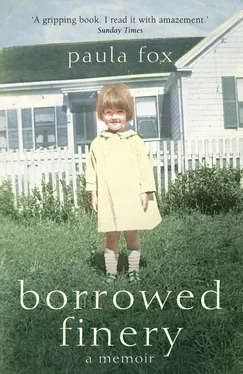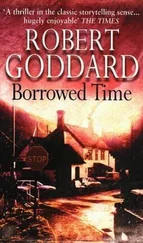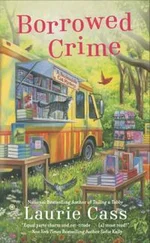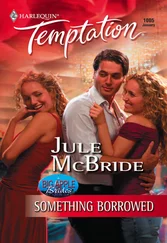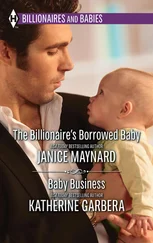Behind it stood an empty manse and, farther away, a small cemetery. To the right of the church portal was a partly collapsed stable with dark cobwebbed stalls, one of which was still used by a single parishioner, ancient bearded Mr. Howell, who drove his buckboard and horse up the gravel-covered road that led to the church. He always arrived a minute or two before Sunday service began, dressed in a threadbare black overcoat in all seasons of the year, its collar held tight to his throat by a big safety pin. He seemed to me that rock of ages we sang about in the hymn.
After the service, we sometimes called upon two women, an elderly woman and her unmarried daughter, who looked as old as her mother, both in the church choir, whose thin soprano quavers continued long past the moment when other choir members had ceased to sing and had resumed their seats. They appeared not to notice they were the only people still standing in the choir stall.
They lived in a narrow wooden two-story house that resembled most of the other houses in Washingtonville. They would give us Sunday dinner in a back room that ran the width of the house and could accommodate a table large enough for the four of us. It was a distance from the kitchen, where they usually ate their meals, and there was much to-ing and fro-ing as they brought dishes and took them away, adding, it felt to me, years of waiting to the minutes when we actually ate. Summer heat bore down on that back room. It was stifling, hot as burning kindling under the noonday sun. Everything flashed and glittered—cutlery, water glasses, window panes—and drained the food of color.
When we visited Emma Board and her family in another part of the village, I felt a kind of happiness and, at the same time, an apprehension—like that of a traveler who returns to a country where she has endured inexplicable suffering.
I had arrived at the Boards’ house when I was two months old, brought there by Katherine, the eldest of four Board children. She had taken me to Virginia on her brief honeymoon with Russell, her new husband. When they returned, her mother was sufficiently recovered from Spanish influenza to take care of an infant.
I heard the tale decades later from Brewster, one of Katherine’s two brothers, who had lived in New York City with Leopold, one of my mother’s four brothers. I had been left in a Manhattan foundling home a few days after my birth by my reluctant father, and by Elsie, my mother, panic-stricken and ungovernable in her haste to have done with me.
My grandmother, Candelaria, during a brief visit to New York City from Cuba, where she lived on a sugar plantation most of the year, inquired of Leopold the whereabouts of his sister and the baby she knew had been born a few weeks earlier. He said he didn’t know where my parents had gone, but that over his objections they had placed me in a foundling home before leaving town—if indeed they had left.
When she heard where I was, my grandmother went at once to the home and took me away. But what could she do with me? She was obliged to return to Cuba within days. For a small monthly stipend, she served as companion to a rich old cousin, the plantation owner, who was subject to fits of lunacy.
It was Brewster who suggested she hand me over to Katherine, who carried me in her arms on her bridal journey to Norfolk.
By chance, by good fortune, I had landed in the hands of rescuers, a fire brigade that passed me along from person to person until I was safe. When we visited the old woman and her daughter, or any other of the minister’s parishioners, I was diffident and self-conscious for the first few minutes. But not ever at the Boards’.
For a very short period of my infancy, I had belonged in that house with that family. At some moment during our visits there, I would go down the cellar steps and see if a brown rattan baby buggy and a creaking old crib, used at one time or another by all the Board children and for three months by me, were still stored there. I think the family kept them so I would always find them.
I was five months old when the minister, hearing of my presence in Washingtonville and the singular way I had arrived, an event that had ruffled the nearly motionless, pond-like surface of village life—and knowing the uncertainty of my future, for the Boards, like most of their neighbors in those years, were poor—came by one Sunday to look at me. I was awake in the crib. I might have smiled up at him. In any event, I aroused his interest and compassion. He offered to take me, and, partly due to their straitened circumstances, the Boards agreed to let me go.
After he finished his sermon, Uncle Elwood would step aside from the pulpit. As the choir rose to sing, he would clasp his hands and gaze down at me where I sat alone in a front pew. There would be the barest suggestion of a smile on his face, a lightening of his Sunday look of solemnity.
The intimacy of those moments between us would give way when a church deacon passed a collection plate among the congregation, now hushed by an upwelling sense of the sacred that followed a reading of Bible verse. When he reached my pew, I would drop in a coin given me earlier by Uncle Elwood.
Later, when I stood beside him at the church portal while people filed out and shook his hand, and old Mr. Howell hurried by, mumbling his thanks for the sermon in a rusty, hollow voice, the feeling of intimacy returned.
I was known to the congregation as the minister’s little girl, and thinking of that, I was always gladdened. I turned to him after Mr. Howell had vanished into the stable, noting as I usually did the formality of his preaching clothes, the pearl stickpin in his black and silver tie, a silken stripe running down the side of the black trousers, the beetle-winged tails of his black jacket.
It was like the Sunday a week earlier, and all the Sundays I could recall. I slipped my hand into his, and he clasped it firmly. I watched Mr. Howell, who had backed his buckboard and horse out of the stable and was starting down the road.
My unquestioning trust in Uncle Elwood’s love, and in the refuge he had provided for me in the years since Katherine had taken me to her mother, would abruptly collapse. In an instant, I realized the precariousness of my circumstances. I felt the earth crumble beneath my feet. I tottered on the edge of an abyss. If I fell, I knew I would fall forever.
That happened too every Sunday after church. But it lasted no longer than it takes to describe it.
Great storms swept down the Hudson Valley in the summer, especially in August. Thunder and lightning boomed and crackled. The world around the house in Balmville flashed with gusts of wind-driven rain. Through black dissolving windows, trees swayed and bent as they appeared to move closer, to form a circle of leaves and agitated branches that threatened to swallow up the house and us with it.
When the storms struck late at night, Uncle Elwood first woke me—if thunder hadn’t already—and then went to his mother’s room. He lifted her up from her bed and carried her past the large pier glass at the top of the stairs, and together we went down to the central hall, where he settled her in an armchair he would have moved from the living room earlier that day when he had first noticed black clouds forming in the sky.
Emily Corning had been crippled with arthritis for eighteen years, and she bore the pain of it with patience and austerity as though it were a hard task imposed on her to test her faith in the deity.
In the flickering yellow glow of the kerosene lamp the minister kept for such emergencies—the electricity always failed during storms—I would stare at the old woman sitting in the shadowed corner, not quite covered by a shawl her son had wrapped around her. A mild smile would touch her colorless lips when she grew aware of my scrutiny. She was unable to lift her head upright and peered at everyone from beneath her brow. She rarely spoke to me, yet I could feel kindness emanating from her just as I could feel the distant warmth of the sun in winter. Her words were few and nearly always about the view of the Hudson River, which she could see from her wheelchair, placed by the minister in front of the three-windowed bay in her bedroom all the mornings that I lived in that house.
Читать дальше
